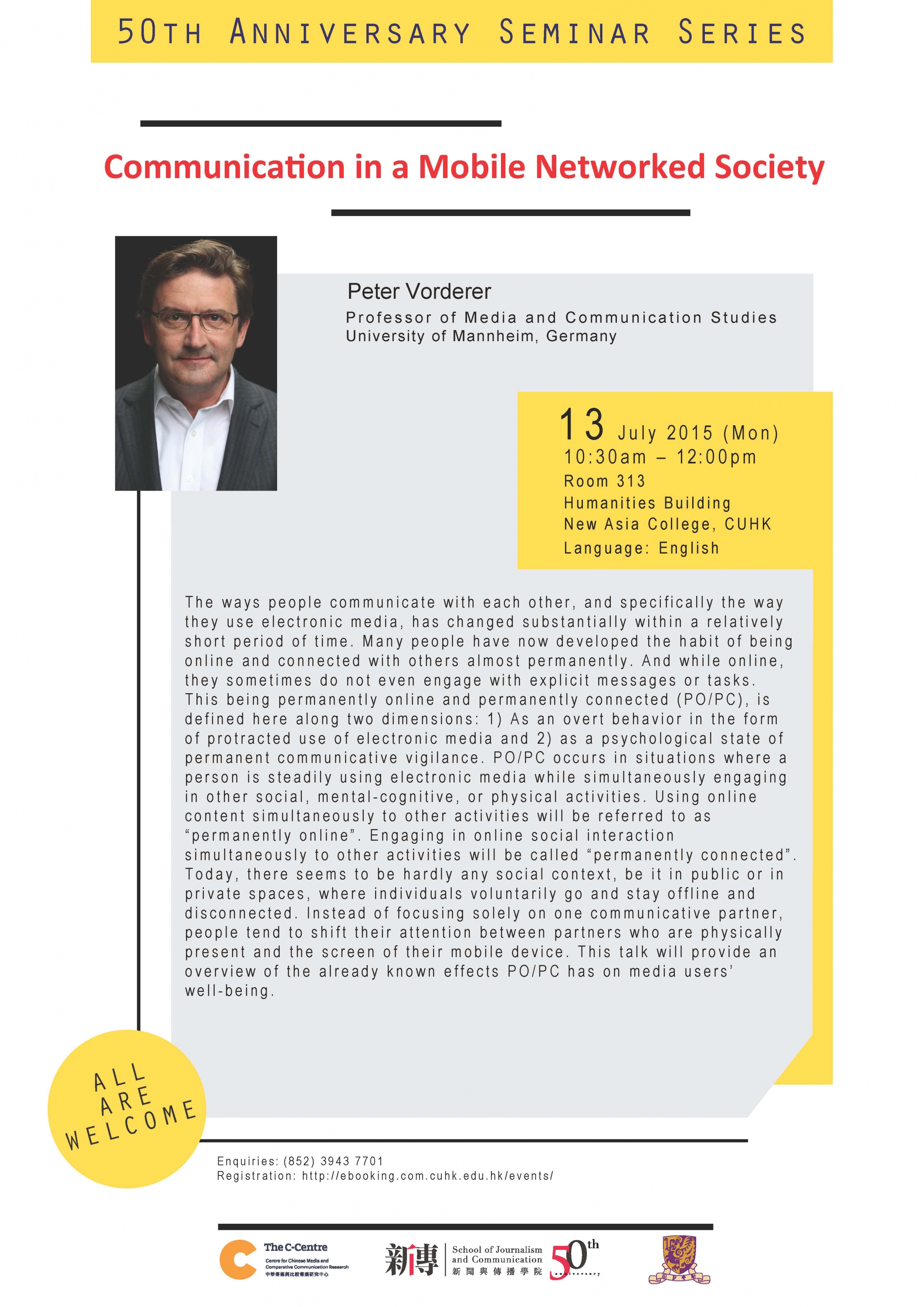活动
School of Journalism and Communication 50th Anniversary Seminar by Prof. Peter Vorderer
2015年7月13日
上午十时半至中午十二时
人文馆313室
Prof. Peter Vorderer
Peter Vorderer is the Professor of Media and Communication Studies, University of Mannheim, Germany. He is also the ICA President.
manlokchan@cuhk.edu.hk
The ways people communicate and interact with each other, and specifically the way they use electronic media, has changed substantially within a relatively short period of time. Instead of using media to receive or retrieve information and/or entertainment only at certain points in time and for a specific amount of time, many people have now developed the habit of being online and connected with others almost permanently. And while online, they sometimes do not even engage with explicit messages or tasks; they are just “there,” online and “together” with others. This being permanently online and permanently connected (PO/PC), is defined here along two dimensions: 1) As an overt behavior in the form of protracted use of electronic media and 2) as a psychological state of permanent communicative vigilance. PO/PC occurs in situations where a person is steadily using electronic media while simultaneously engaging in other social, mental-cognitive, or physical activities. Using online content simultaneously to other activities will be referred to as “permanently online”. Engaging in online social interaction simultaneously to other activities will be called “permanently connected”. Today, there seems to be hardly any social context, be it in public or in private spaces, where individuals voluntarily go and stay offline and disconnected. People seem to spend less time focusing solely on one communicative partner, instead shifting their attention between partners who are physically present and the screen of their mobile device, where a new message has come in or is expected. This talk will provide an overview of the already known effects PO/PC has on media users’ well-being.




